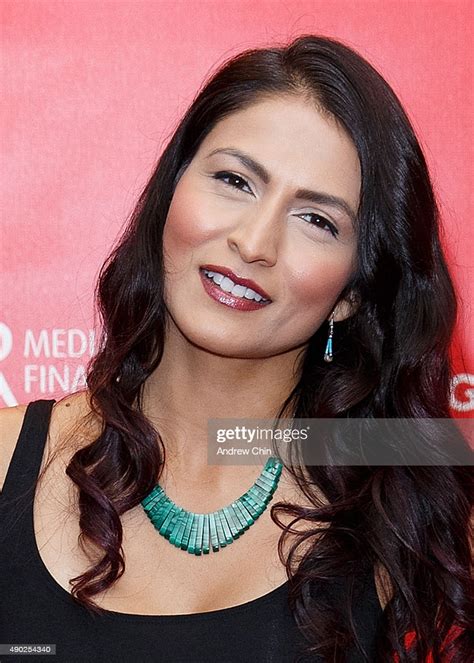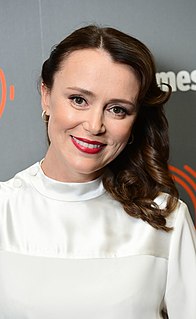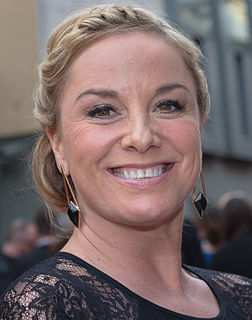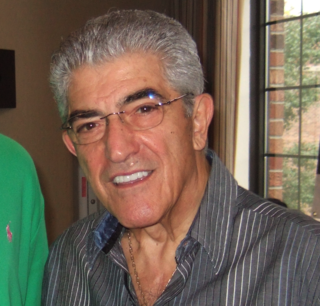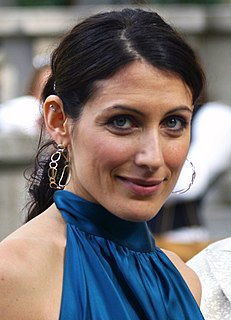A Quote by Geena Davis
For a long time, way back in the ’30s and ’40s, there were fabulous female roles. Bette Davis and all those people had incredible, great roles. After World War II, something happened where it was not only "get out of the factories," but "get out of the movies." That's when women's roles started to really [change].
Related Quotes
We had a moment in the '40s and '50s, where female characters were very strong in film, where these incredible roles were written for women like Joan Crawford, like Bette Davis. But then there was a space of time where - I don't know why - it wasn't like that. It became difficult for women to find certain roles after a certain age.
There are certain aspects of me that can be bad-ass sometimes, but being able to push it to the extreme is something I'd love to play. You don't get those roles, as a female, and especially as an indigenous female. There aren't those roles out there, so I want that. I want women to see a strong, sexy female without showing her body too much.
We're in crisis mode as black actresses. It's not only in the sheer number of roles that are offered and that are out there, but the quality of the roles. The quality - and therein lies the problem. We're in deprivation mode because me, Alfre and Phylicia, we're in the same category. Whereas if you take a Caucasian actress, you have the one who are the teens, in their 20s, 30s, 40s, 50s - they're all different. There are roles for each of them. But you only have two or three categories for black actresses.
You have to get out of your comfort zone in order to grow. And as an actor, you don't become Meryl Streep by doing the same type of comedy. You get there by being challenged. And unfortunately, there's a lack of roles for women of color, so you actually have to be the engineer creating some of those roles.
Theater roles are written by the great masters. The greatest literature that you can possibly know are the theater roles like King Lear, Hamlet, and all of those great roles. So all you do is you dive into these unchallenged roles and see how far you can get, what kind of accolades you can get, and how good you can be in them. In movie roles, you can actually improve them by knowing a lot about your own stage technique, which helps a great deal in the cinema and how you can project inner humor even though the particular dialogue is not necessarily funny, but you can infuse it with humor.
I think there are great roles for women in television because there is time to allow those characters to evolve. Even if you're the wife or the girlfriend or whatever it is that we women are, playing those things on TV, they are much more drawn out and there are greater arcs for the role. The roles are more integral to the complexity of the story.
The roles that men and women play are no longer the standard traditional roles of way back when but are those of two very individual people living their lives. I think it's been a hard transition in society - just take a look at the divorce rate - to figure out what that means now. How do you resolve that?


